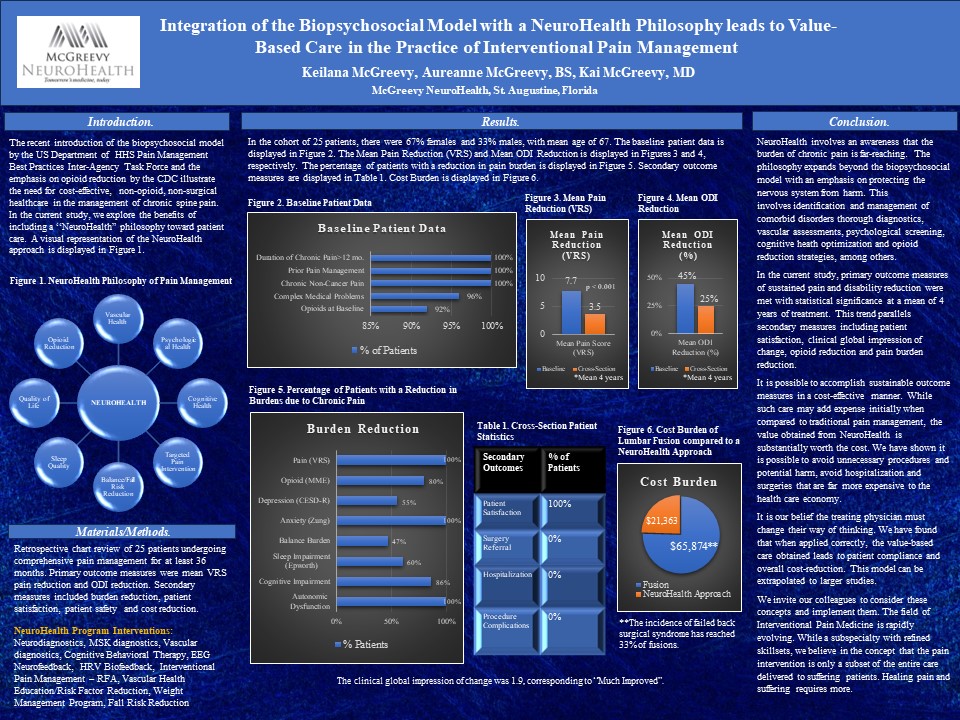
Synopsis
The recent introduction of the biopsychosocial model by the United States Department of Health and Human Services Pain Management Best Practices Inter-Agency Task Force and the emphasis on opioid reduction by the Centers for Disease Control and Prevention (CDC) illustrate the need for cost-effective, non-opioid, non-surgical healthcare in the management of chronic spine pain. Our project’s goal is to apply these principles in combination with our NeuroHealth philosophy at the community level in an outpatient neurological pain clinic.
The NeuroHealth concept involves a holistic awareness of chronic pain and its far-reaching burdens that are often overlooked, and requires an approach to treat the patient beyond their disease. It integrates important elements of neurology, interventional pain medicine, musculoskeletal medicine, neuroimaging, vascular medicine, preventive medicine, and mental health into a big-picture approach to patient care. The philosophy expands beyond the biopsychosocial model with an emphasis on protecting the nervous system from harm. This program applies neurodiagnostics, vascular assessments, psychological screening, cognitive heath optimization and opioid reduction strategies, while identifying and managing comorbid disorders that have downstream impacts on the experience and chronicity of pain. A visual representation of the NeuroHealth approach is displayed in Figure 1.
Authors
Keilana McGreevy, Aureanne McGreevy, BS, Kai McGreevy, MD
Category
Miscellaneous (doesn’t fit within established categories)
Secondary Category
Non-Pharmacological Treatment of Pain
Disclosures
Nothing to Disclose by any Author